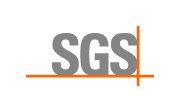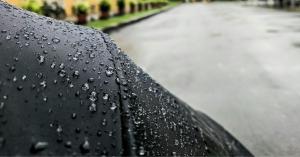
SGS Guides Textile Manufacturers and Brands on How to Phase Out PFAS

Per- and polyfluoroalkyl substances (PFAS) have been widely used in textiles and apparel for their water- and stain-resistant properties. However, concerns over their environmental persistence and toxicity have led to stricter regulations, pushing businesses to replace PFAS with safer, more sustainable alternatives.
The utility of PFAS has led to their widespread use in garments, particularly high-performance wet-weather clothing. Consequently, alongside broad regulations restricting PFAS in consumer products, the textile sector is also subject to specific legislation.
January 1, 2025
New Year’s Day saw the implementation of three important regulatory changes for textile and apparel businesses operating in the US.
Firstly, California Assembly Bill No. 1817 prohibits the manufacture, distribution, sale or offer for sale of any new textile article containing a regulated PFAS that is intentionally added or present at a level above a set threshold. Manufacturers are required to provide a certificate of compliance stating that their products do not contain a regulated PFAS.
Secondly, New York has implemented a ban on the sale or offer for sale of any new apparel containing an intentionally added PFAS. However, this prohibition will not apply to outdoor clothing for severe wet conditions until January 1, 2028.
Finally, Colorado recently initiated a phased approach to prohibiting PFAS in outdoor clothing for severe wet conditions. Initially, products containing PFAS can still be sold if they carry the disclosure notice: ‘Made with PFAS chemicals.’ However, from January 1, 2028, all outdoor apparel for severe wet conditions and textile articles with intentionally added PFAS, primarily used in households and businesses, will be banned.[1]
These are just the latest PFAS bans affecting consumer products, and the trend toward greater restriction is expected to continue. For example, businesses operating in Europe should be aware that the European Chemicals Agency (ECHA) is advocating for a universal ban on PFAS under REACH. Once accepted, other countries, including the UK and Canada, will probably align with the new requirements.
Challenges
Textile manufacturers, retailers and brands face several challenges when seeking to eliminate PFAS, including:
• Compliance – Businesses need to stay informed to adapt their supply chains to rapidly evolving regulations and remain compliant
• Performance – Alternatives need to display the same durability, water repellency and stain resistance as PFAS
• Transparency – It can be difficult to monitor the use of PFAS-based chemicals in supply chains with multiple operators
• Consumer trust – Headlines such as, ‘Fast fashion is made with alarmingly high amounts of toxic chemicals,’ have heightened consumer awareness of PFAS risks, increasing demand for independently verified products free from harmful substances[2]
Approaches to PFAS-free textile production
Businesses must take a proactive approach to maintaining compliance in an ever-changing regulatory landscape. Available options include adopting alternative chemistries, such as water- and silicone-based repellents, biobased coatings and advanced polymers. Manufacturers and brands can also implement a rigorous testing system to ensure products conform to regulatory requirements.
However, rather than testing end products for compliance, it is more cost-effective to ensure that inputs are free from PFAS. This approach requires transparency and effective oversight of the entire supply chain. Partnering with suppliers certified to strict chemical management standards is an effective starting point. Independent verification not only ensures regulatory compliance but also enhances brand trust in markets where sustainability is a key driver of success.
PFAS phase-out
bluesign, an SGS company, has been at the forefront of supporting sustainability in textiles since 2000. In 2015, it banned long-chain PFAS (C8 chemistry) in products carrying the bluesign logo.
In response to the growing body of evidence on the damaging effects of PFAS, bluesign is now expanding its ban to phase out short-chain PFAS (C6 chemistry). From January 2025, all bluesign APPROVED and bluesign PRODUCT items must be free from intentionally added PFAS, with limited exceptions for essential uses.
Exceptions apply where there is a significant socioeconomic justification and no viable alternative, such as personal protective equipment (PPE) classified under risk category III and textiles used in automotive or aerospace engine bays. In these cases, the bluesign SYSTEM PARTNER must provide evidence to qualify for the exception.
Timeline for change
• July 2022 – New PFAS-containing chemicals were banned from registration in bluesign FINDER, the online database of bluesign-certified chemical products
• July 2023:
o All existing PFAS chemicals were removed from bluesign FINDER and certification was banned
o New articles/materials that are treated with PFAS-containing chemical products were banned from registration in the bluesign GUIDE, the online database for bluesign-certified articles (unless exempted)
• July 2024 – Registration of any new bluesign PRODUCT containing materials/articles treated with PFAS-containing chemicals is no longer possible in the bluesign GUIDE (unless exempted)
• January 2025:
o All articles treated with PFAS-containing chemical products, and any bluesign PRODUCT containing these materials/articles, were removed from the bluesign GUIDE (unless exempted)
o New articles containing a PTFE membrane are no longer eligible for registration in the bluesign GUIDE (unless exempted)
• January 2026 – All articles and any bluesign PRODUCT falling under exemptions will be removed from the bluesign GUIDE, and labeling of these materials/articles as bluesign APPROVED is no longer permitted.
Bluesign solution
The bluesign SYSTEM offers a comprehensive solution for manufacturers, retailers and brands seeking to demonstrate sustainability and regulatory compliance across their products and supply chains.
A proactive approach to PFAS and other hazardous chemicals ensures safer products for workers, consumers and the environment. Beyond safety and sustainability, certification supports market growth by differentiating products for eco-conscious consumers. The bluesign logo is a trusted symbol that enhances brand reputation and signals a commitment to environmental and social responsibility.
Find out more: https://www.bluesign.com/en/services/
Discover IMPACT NOW for sustainability. (https://www.sgs.com/en-gb/our-services/impact-now-for-sustainability)
[1] New York and California: Bans on PFAS in Textiles and Apparel Begin January 1, 2025 – Publications
[2] Fast fashion is made with alarmingly high amounts of toxic chemicals, say authorities. 5 substances can affect your immune system.
About SGS
SGS is the world’s leading Testing, Inspection and Certification company. We operate a network of over 2,500 laboratories and business facilities across 115 countries, supported by a team of 99,500 dedicated professionals. With over 145 years of service excellence, we combine the precision and accuracy that define Swiss companies to help organizations achieve the highest standards of quality, compliance and sustainability.
Our brand promise – when you need to be sure – underscores our commitment to trust, integrity and reliability, enabling businesses to thrive with confidence. We proudly deliver our expert services through the SGS name and trusted specialized brands, including Brightsight, Bluesign, Maine Pointe and Nutrasource.
SGS is publicly traded on the SIX Swiss Exchange under the ticker symbol SGSN (ISIN CH0002497458, Reuters SGSN.S, Bloomberg SGSN:SW).
For further information, please contact:
Jackie Brown, PR Account Executive
Sugarloaf Marketing Ltd.
+44 7792 970919
jackie@sugarloafmarketing.com
Visit us on social media:
Other
Distribution channels: Chemical Industry, Companies, Textiles & Fabric Industry
Legal Disclaimer:
EIN Presswire provides this news content "as is" without warranty of any kind. We do not accept any responsibility or liability for the accuracy, content, images, videos, licenses, completeness, legality, or reliability of the information contained in this article. If you have any complaints or copyright issues related to this article, kindly contact the author above.
Submit your press release

